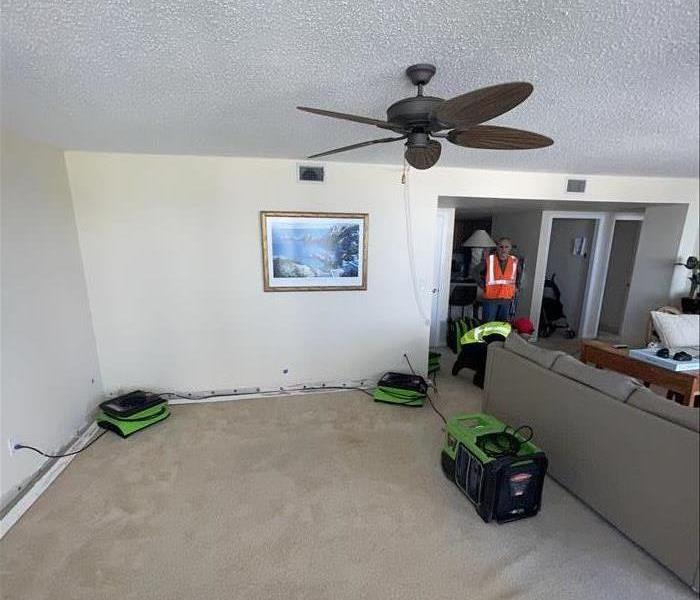Steps to Prepare for a Water Emergency
6/11/2024 (Permalink)
 By following these steps and being prepared, you can help minimize the impact of a water emergency on your home and belongings.
By following these steps and being prepared, you can help minimize the impact of a water emergency on your home and belongings.
Water emergencies can strike unexpectedly and cause significant damage to your property if you're not adequately prepared. Whether it's a burst pipe, flooding, or a plumbing malfunction, being proactive and prepared can help minimize damage and protect your home and belongings. In this guide, we'll outline essential steps to help you prepare for a water emergency and mitigate potential damage.
Know Your Home
Familiarize yourself with the layout and key components of your home's plumbing system. Locate the main shut-off valve for the water supply and learn how to turn it off in case of an emergency. Understanding your home's plumbing system will help you act quickly and decisively during a water emergency.
Inspect and Maintain Your Plumbing
Regular maintenance of your plumbing system can help prevent water emergencies. Inspect pipes, faucets, and appliances for signs of leaks, corrosion, or damage. Repair any issues promptly to prevent them from escalating into more significant problems. Consider scheduling annual plumbing inspections to catch potential issues early.
Assemble an Emergency Kit
Put together an emergency kit that includes essential supplies and tools to help you respond to a water emergency. Items to include in your kit may vary but could consist of flashlights, batteries, a first aid kit, non-perishable food, water, blankets, and a portable radio. Keep your emergency kit in a readily accessible location.
Invest in Water Detection Devices
Consider investing in water detection devices, such as water leak sensors and alarms, to alert you to potential leaks or flooding. These devices can provide early warning of water-related issues, allowing you to take swift action and prevent extensive damage. Place water detection devices in areas prone to water damage, such as basements, crawl spaces, and near appliances.
Secure Valuables and Important Documents
Take steps to protect valuable items and important documents from water damage. Store valuables in waterproof containers or elevated areas to minimize the risk of water exposure. Make digital copies of essential documents, such as insurance policies, identification, and medical records, and store them in a secure, cloud-based location.
Review Your Insurance Coverage
Review your homeowner's insurance policy to understand what types of water damage are covered and what may be excluded. Consider purchasing additional coverage or endorsements for specific water-related risks, such as flood insurance or sewer backup coverage. Keep a copy of your insurance policy and contact information for your insurance provider in your emergency kit.
Stay Informed
Stay informed about potential water-related risks in your area, such as severe weather forecasts, flooding, or plumbing issues. Monitor local news and weather reports for updates and advisories. Being aware of potential risks can help you take proactive measures to protect your home and family.
By following these steps and being prepared, you can help minimize the impact of a water emergency on your home and belongings. Taking proactive measures and having a plan in place will give you peace of mind and ensure that you're ready to respond effectively in case of a water-related crisis.


 24/7 Emergency Service
24/7 Emergency Service